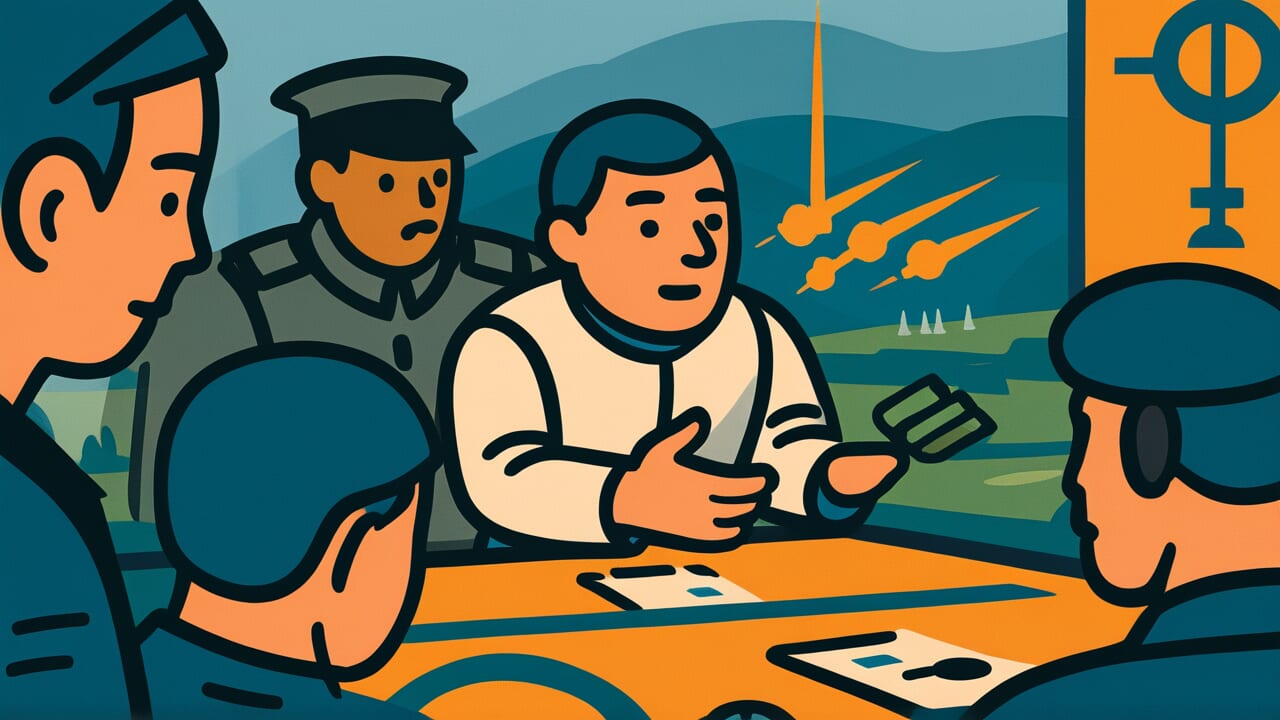How to Read “Plan first, then fight”
はかりごとさだまりてのちたたかう
Meaning of “Plan first, then fight”
“Plan first, then fight” teaches us to make thorough plans before taking action. It emphasizes the importance of careful preparation and planning rather than starting things on impulse or momentum alone.
This proverb applies when facing important decisions or major challenges. It holds special meaning in situations where failure is not an option, like starting a new business, taking exams, or facing life’s turning points.
People also use it to encourage someone who’s about to jump in without thinking to stop and consider their approach first.
In our modern world, speed is often valued above all else. Yet this teaching remains as relevant as ever.
In fact, precisely because we’re overwhelmed with information and choices today, solid planning and preparation become the surest path to success.
Taking time to prepare isn’t a detour. It’s the most reliable way to move forward.
Origin and Etymology
This proverb likely comes from classical Chinese military philosophy. Ancient military texts like “The Art of War” contain many passages explaining how crucial advance planning and preparation are in battle.
The character “謀” means plan or strategy. “定まる” means the plan becomes complete or settled. “後” indicates the sequence in time, and “戦う” refers to taking actual action.
The structure of the phrase itself clearly shows the correct order: planning, then execution.
In ancient China, war was a matter of national survival. Fighting without a plan could destroy a country and bring suffering to its people.
Great generals and strategists carefully analyzed every factor: terrain, weather, enemy conditions, and their own army’s capabilities. They moved their forces only after determining they could win.
This philosophy spread to Japan and became highly valued in samurai society.
Japanese warlords during the Warring States period practiced this teaching. Before fighting, they had mountains of work to do: gathering intelligence, securing supply lines, building alliances.
This practical wisdom has been passed down through generations as a proverb that remains relevant today.
Usage Examples
- We received a proposal for a new business venture, but following the spirit of “plan first, then fight,” we decided to start with market research
- For exam preparation too, “plan first, then fight” applies—first analyze your weak points and create a study plan
Universal Wisdom
Humans have a tendency to act on anxiety and impulse. When we see an opportunity, we want to jump on it immediately.
We don’t want rivals to beat us to it. We want quick results. These emotions cloud our calm judgment.
Yet looking back through history, we find countless failures caused by hasty action. Armies that went to battle unprepared, businesses started without plans, adventures undertaken without foresight.
Most ended tragically. Humans repeat the same mistakes, but we’re also capable of learning from experience.
“Plan first, then fight” was born because our ancestors, after many painful failures, arrived at one truth.
They discovered that preparation—that unglamorous work—is actually the biggest factor determining victory or defeat.
What’s fascinating is how this wisdom has been passed down through the ages. This happens because human nature doesn’t change.
Modern people and ancient people share the same emotions: anxiety, ambition, and fear. That’s why this teaching still resonates with us today.
Making plans is an act of controlling our impulses and regaining our reason.
When AI Hears This
Thinking about battlefield uncertainty in numerical terms reveals interesting insights. In information theory, the level of uncertainty is expressed as “entropy.”
For example, if the enemy could be in any of 10 locations versus narrowed down to 2 locations, the latter has lower entropy. The uncertainty has decreased.
What’s important here is that reducing entropy requires almost no physical energy. Reconnaissance and analysis consume far less energy than actually fighting.
By investigating enemy positions, troop strength, and supply routes, battlefield uncertainty drops dramatically. Meanwhile, the enemy lacks information about you.
The moment this “information asymmetry” emerges, most of the battle is already decided.
Specifically, military research shows that the side with complete information versus the side without can have a tenfold difference in win rates.
Sun Tzu’s ideal of “winning without fighting” becomes reality through this information gap. If the enemy judges they “cannot win,” they surrender without fighting.
In other words, this proverb demonstrates the ultimate cost-performance strategy: small energy investment (information gathering) yields large returns (improved probability of victory).
In modern business, allocating budget to market research follows exactly the same principle.
Lessons for Today
Modern society increasingly demands instant decisions. On social media, immediate reactions are expected. In business, speed is considered competitive advantage.
Yet the more important the decision, the more we need time to stop and think.
This proverb teaches us to have the courage to pause and make plans, especially when we feel rushed.
Even if everyone around you seems to be hurrying, you have the right to prepare at your own pace.
Specifically, before important decisions, clarify your goals, gather necessary information, consider multiple options, and anticipate potential problems.
Even just writing things down helps organize your thoughts.
Taking time to prepare isn’t cowardly. It’s a responsible attitude toward your own life.
With solid planning, you can proceed without hesitation during execution and handle unexpected difficulties calmly.
To realize your dreams and goals, why not start by “establishing your plan”?



Comments